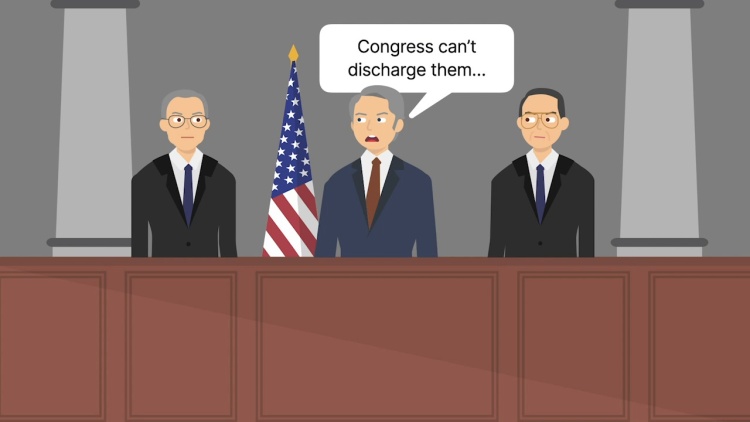United States v. Lovett
United States Supreme Court
328 U.S. 303 (1946)

- Written by Sean Carroll, JD
Facts
Lovett, Watson, and Dodd (plaintiffs) worked for the federal government (defendant). The Urgent Deficiency Appropriation Act of 1943 provided that after November 15, 1943, no salary would be paid to the plaintiffs out of appropriated funds unless the president, with the advice and consent of the Senate, reappointed them. The plaintiffs were named in the bill because of certain congressmen’s thoughts about the plaintiffs’ beliefs, loyalties, or Communist associations. After November 15, the plaintiffs continued to work in their government positions without being formally reappointed. Pursuant to the act, they did not receive compensation for their work. The plaintiffs sued the federal government, arguing, among other things, that the act constituted an impermissible bill of attainder. The United States argued that Congress’s appropriations power is not justiciable. The court of claims ruled in the plaintiffs’ favor. The United States Supreme Court granted certiorari.
Rule of Law
Issue
Holding and Reasoning (Black, J.)
Concurrence (Frankfurter, J.)
What to do next…
Here's why 907,000 law students have relied on our case briefs:
- Written by law professors and practitioners, not other law students. 47,100 briefs, keyed to 996 casebooks. Top-notch customer support.
- The right amount of information, includes the facts, issues, rule of law, holding and reasoning, and any concurrences and dissents.
- Access in your classes, works on your mobile and tablet. Massive library of related video lessons and high quality multiple-choice questions.
- Easy to use, uniform format for every case brief. Written in plain English, not in legalese. Our briefs summarize and simplify; they don’t just repeat the court’s language.





